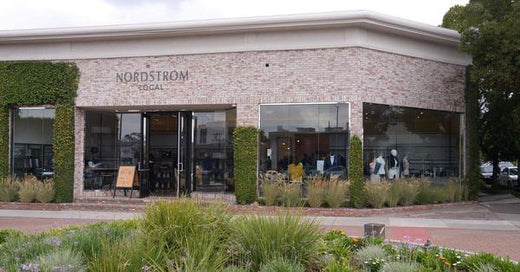
A Survival Guide for Seasonal Retailers
While your products or services may be considered seasonal, your business is not. Here are some tips for making your retail business more sustainable during the off-season:
Adjust your services and audience to create a year-round business
There are some seasonal retailers that don’t realize this, but many ‘seasonal items’ can be used year-round when marketed the right way. Evaluate your business to determine if you can adjust your services or audience to fulfill consumers’ needs outside of peak-season.
For example, a Halloween store will thrive during the months of September and October, but after that there generally isn’t much need for a Halloween costume. Instead, target local theater groups to provide stage costumes, or ramp up your marketing efforts around the time of Comic-Con or similar events where thousands of attendees will be looking for costumes and other accessories. Instead of only offering only Halloween decor and party supplies, offer seasonal decor for every holiday or more generic party supplies.
Establish your brand and build loyalty
Just because it is no longer your season to shine, that doesn’t mean you should disappear from your audiences. Continue to promote your business throughout the off-season and build loyalty to your brand. Your audience might not be able to benefit from your product at that very moment, but when peak-season comes around, consumers will remember your business and insights.
For example, if you run a farmer’s market during the spring or summer months, posting recipes using your best fruits and vegetables will allow your consumers to be regularly exposed to your business and think of you when it’s time to make those summer salads again.
Drive online sales
Holiday-based or seasonal retailers may be ready to close up shop at the end of their peak-season, but online sales can help bring in year-round revenue. Consider reducing prices on off-season items such as holiday decorations or flips flops and swimsuits, and sell these items online during the off-season to still bring in a steady stream of revenue. Additionally, consumers can avoid in-store crowds during peak periods by purchasing next year’s Christmas decorations online, months in advance. It’s a win for everyone! Remember to promote your discount items online through social media ads for a simple one-click shopping experience.
Downsize during off-season
Even if you are finding ways to bring in revenue during your off-season, chances are your business is not operating at the volume that it does during peak-season. For this reason, it is important to find ways to cut back on spending during your down time. This can be done by only hiring a handful of employees as year-round staff while increasing your number of seasonal employees during peak periods. You may also want to cut business hours down to only a few hours per day or a few days a week to save on utility and operations costs.
Another important thing to keep in mind is to keep track of inventory and popular items during your busy season so you know what to continue selling and what you can manage without during the slower periods. With that said, reevaluate your vendor and supplier needs during the off-season versus when your store is booming with business.
Plan ahead
If you own a business that is more difficult to generate revenue from year-round, be sure to use your down time to prepare for your next peak-season. Analyze your sales and inventory, do some research on your key demographics, work on your marketing strategy, and check out the competition. Make sure to plan, plan, and plan some more in order to make your next business season a successful one!
If your business is seasonal, but you don’t want your revenue to be, try some of these tips to start earning more and doing better business year-round.


